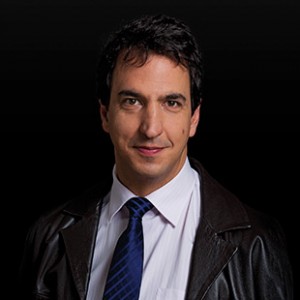Inside the Syrian refugee crisis – by Michael Petrou
The stories of two families who left everything behind in Syria to chase a better life only to be part of the worst refugee crisis since the Second World War
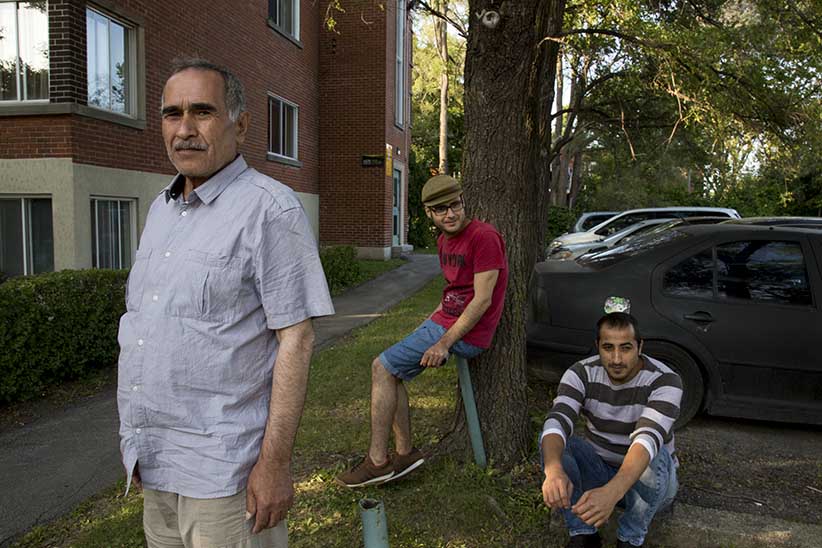
Rezan Abdou, 35, soft-spoken and a little brooding, sits wearing a black shirt tightly buttoned over his thick chest in an almost empty apartment in a working-class Montreal neighbourhood near the Côte-Vertu Metro station.
He’s lived here for only a couple of weeks, with his father, Zakaria, his mother, Rokan, and his brother Mohammed. Before that, it was the local YMCA. Before the YMCA, less than a month ago, was Istanbul, Turkey, along with his sister, Midya, and another brother, Ali. And before Istanbul was Aleppo, Syria—an ancient, diverse and once glorious city that is now rubble.
It was in Aleppo that Rezan learned to dance.
“It is a world that is different from what I see in everyday life,” he says, explaining what he loved about dance and theatre. “It exists inside your mind and body.”
He was lucky there, to have the freedom and the means to study these arts, to give expression to that world in his mind and body. Rezan’s father grew up poor and never went to school himself, instead working as a shoemaker since the age of seven, when his own father died. Zakaria wanted something different for his children.
“I suffered a lot during my life,” he says, his face weathered, a bushy moustache surrounded by grey stubble. “I wanted to compensate for that by giving education to my children. Whatever they asked for, I worked hard to be able to give to them. And then what happened during these last four years, happened. And almost everything was lost.”
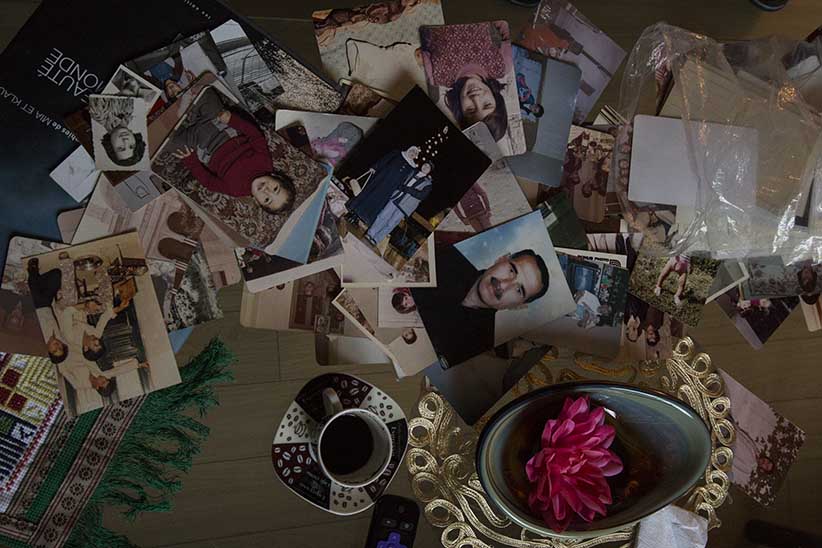
What happened during these last four years was an uprising against Syrian dictator Bashar al-Assad, which grew into a civil war, which has all but destroyed a country.
Assad’s regime, responsible for tens of thousands of civilian deaths through the bombardment of civilian neighbourhoods, poison-gas attacks and the murder of detainees, still holds large chunks of territory in western Syria, including most of Damascus.
Among the many rebel groups and militias that have sprung up since the war began, one calling itself Islamic State has taken over much of northeastern Syria and declared a nightmarish caliphate in which women and children are enslaved, traded and raped; minorities are exterminated; dissenters are crucified; and captives, including Western journalists and aid workers, are grotesquely killed on film.
More than 250,000 Syrians are dead. Some 12 million, more than half of Syria’s pre-war population, are displaced. About eight million are displaced inside Syria. This month, the United Nations said more than four million have fled as refugees to other countries.
The Abdou family is a speck of ash blown from this fire. Another is the al-Dandachi family, who live a short drive away in the Montreal suburb of Laval. The Dandachis arrived in Canada last June. After a year in Canada, they are more settled and comfortable in their new home than are the Abdous.
Jasim, the family patriarch, proudly says that already, his youngest son, Hamza, speaks French like a Québécois. Jasim says he wants to learn French, too, so he can tell Quebecers and other Canadians how grateful he is to have been welcomed here.
The Dandachis are among the 1,300 Syrian refugees Canada’s Conservative government promised to bring to Canada in 2014—a pledge that was fulfilled this March. The Abdous are among the first of an additional 10,000 Canada says it will settle here by the end of 2017, through a combination of government-assisted and privately sponsored programs. Citizenship and Immigration Canada won’t say how many have arrived so far. (Government-assisted refugees have many of their living expenses for up to one year in Canada paid for by the government of Canada or Quebec. In the case of privately sponsored refugees, the sponsors, such as church groups or other organizations, foot those bills. Citizenship and Immigration Canada estimates that the costs to a sponsor of supporting a family of four for one year is about $27,000. Both types of refugees may be able to secure a loan from the government of Canada to cover travel expenses to Canada, including required medical examinations abroad, and transportation costs.)
If Canada does meet its pledge to bring 11,300 Syrian refugees here over four years, it will represent a significant percentage of the 12,000 or so refugees who typically come to Canada annually (not including those who claim asylum upon arrival, or their dependents). But it is a modest response to what is the worst refugee crisis since the Second World War—one that has been fed by four years of mayhem and death that the rest of the world has failed to stop.
Canada’s planned intake of a few thousand Syrian refugees a year pales beside the more than one million Syrian refugees now in Lebanon, or the almost two million in Turkey. Other Western counties have also accepted more. Germany has taken in some 80,000 Syrians since 2011. Sweden, a country with less than one third of Canada’s population, has resettled 40,000. (Many of the Syrians accepted for settlement in European countries arrived there illegally and claimed asylum. Canada, with the Atlantic Ocean separating it from Syria, typically accepts refugees who have registered as such with the United Nations High Commissioner for Refugees, UNHCR, in neighbouring countries.)
Related:Syria’s refugee time bomb
Canada’s responses to previous mass displacements were more robust. Some 60,000 refugees from Vietnam, Cambodia and Laos—so-called “boat people”—came to Canada after the end of the Vietnam War. More than 30,000 Hungarian refugees came after an anti-Soviet uprising was crushed in 1956. And some 40,000 Jewish survivors of the Holocaust arrived after the Second World War. More recently, Canada has resettled more than 20,000 Iraqis since 2009.
There is no single answer to why Canada’s doors are less open to Syrians than they have been to those displaced by past humanitarian disasters. Some politicians in America have said that accepting Syrian refugees might result in terrorists entering the country. Such fears are not an overt part of political discussions in Canada, although the Conservatives drew criticism in December for saying they would “prioritize” the acceptance of ethnic and religious minorities—a criterion that would exclude Syria’s Sunni Muslims, who belong to the same sect as do the militants of Islamic State, but whose suffering has been no less than that of Syrian Christians or Shia Muslims.
It may simply be that the plight of Syrian refugees doesn’t much resonate with Canadians. There has been little public outcry, and few calls for Canada to replicate some of the grand humanitarian projects it has launched in the past.
It means the Abdous and Dandachis are among a relative few who have escaped Syria’s disintegration to rebuild a life here. They are unique in their good fortune, but their stories would be familiar to thousands of their compatriots.
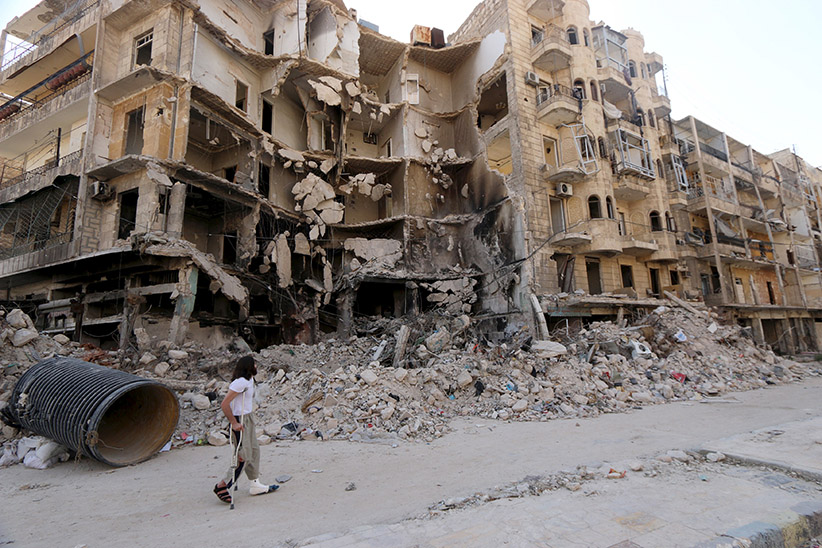
“WE WERE a bouquet of flowers in the Middle East,” says Zakaria, describing with sadness what has become of his homeland. “We want everyone to know that Syria is not Da’ish,” he continues, referring to Islamic State by a term with pejorative undertones that is based on an Arabic acronym for the group.
“Syria is something that is beautiful. It is a beautiful civilization and country. Syria is Christians and Muslims and Alawites and Kurds and Yazidis and Druze. Unfortunately, all this beauty is being destroyed.”
The Abdous are Syrian Kurds. The family hails originally from Afrin in the northwest of the country, but Zakaria moved to Aleppo as a child and stayed there except for a brief sojourn in Lebanon, where he met Rokan, who is also from Afrin.
Rezan was not the only one of their children to show artistic talent. “When I was a young kid, my parents noticed that I loved music,” says Mohammed, 23. “They took me to performances and saw that I was always close to the musicians, trying to understand what they were doing. So they put me in a music academy, and the instrument they chose was the piano.”
Mohammed, who also studied computers, thrived. He eventually taught young children how to play the piano, something he describes as his “mission in life” and what brought him the most happiness.
Rezan found success through art, as well. He wrote a play during his mandatory military service that incorporated material from an Indian poet and featured Joan of Arc, the French martyr. It was performed in Aleppo in front of an audience that included a committee of actors and theatre professionals from a dramatic institute in Damascus. They were impressed, and invited Rezan to teach theatre and dance in the capital.
“Our lives were very far away from politics. We are a family of artists,” says Mohammed.
When the revolution against Assad began in March 2011, they tried to stay out of it.
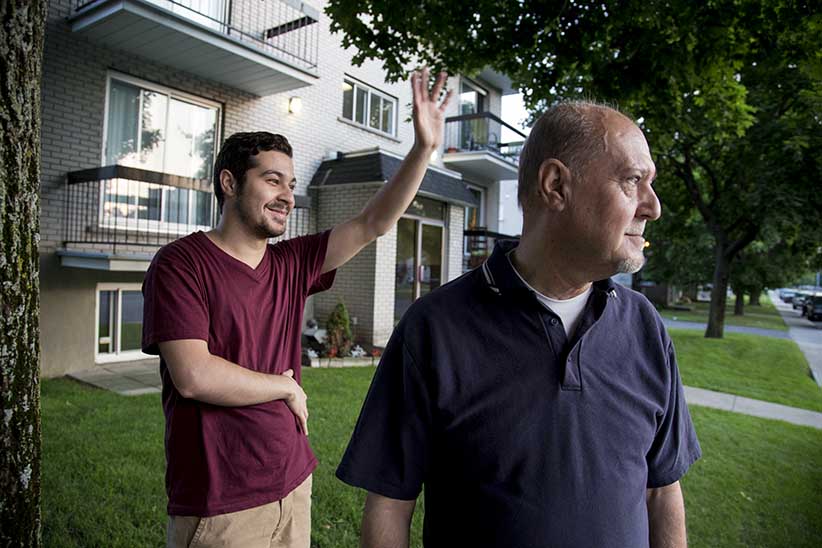
“AT FIRST, I was against the protests,” says Jasim Dandachi, “because, in my opinion, Bashar al-Assad and the Assad family are such criminals that they are capable of wiping out the entire Syrian people. I knew this very well, and that is why I was against them, out of fear of what would happen to Syria.”
Jasim had returned to Syria with his wife, Sohad, and three sons in 2006, after 30 years in Saudi Arabia. They lived in Talkalakh, a town close to the Lebanese border where anti-government protests were prevalent from the early days of revolution.
Jasim had not been an outwardly political person before then. “Maybe I wrote sometimes on Facebook. I had an opinion, of course, but I wasn’t sharing it until after the uprising began,” he says.
Even when the uprising did begin, in March 2011, Jasim urged his sons and their friends not to get involved. “I tried to work with the youths to calm them down. I felt the timing is wrong, and I knew the consequences could be devastating. So I tried to calm the young people down to see if some sort of reform within the regime might be possible.”
Mohammed and Jawad, Jasim’s two eldest sons, defied him and joined the demonstrators on the streets. Jasim again told them to focus on their education instead, but inside he was proud. “I wanted from the bottom of my heart to participate in the demonstrations. The only reason I didn’t was because I knew what the consequences could be.”
Regime armed forces entered Talkalakh in May 2011. At least 25 civilians were killed, and more than 3,000 fled to Lebanon. The Dandachis found refuge in the city of Homs and returned when the army left.
That October, Jasim received a telephone call informing him that Mohammed had been detained at a security branch office in Talkalakh. Jasim was allowed to see him before his son’s transfer to a prison in Homs.
“It was one of the most difficult moments of my life, to see my son behind bars,” he says. “They bring Mohammed to me. I hold him. And I’m crying.”
Now, retelling the story in English and in Arabic, Jasim dissolves once more into tears.
“He was strong. When I’m crying, he did not cry. He told me, ‘Okay, baba [dad], don’t be worried. I’m a man, and I know I did not do anything for you to be afraid about me. Inshallah [God willing], I’m a man and I will be back.’ ”
Jasim tried to give Mohammed 10,000 Syrian pounds to take to the prison in Homs. He would only accept 1,500. They had about half an hour together.
“It was a very difficult moment for me. I held him very hard, because I knew nothing was guaranteed, and it might be the last time I would see him. I knew what happens in regime prisons. I almost didn’t want to look at him, because, at the bottom of my heart, I knew I was leaving him in the hands of people who have no mercy.”
It turns out that someone at Mohammed’s university had denounced him because he had said he wanted to leave the student union, which was linked to the regime. In prison, Jasim says, Mohammed was stripped naked, beaten and hung by his wrists for 12 hours. His jailers searched his social media accounts for signs of dissent. They demanded to know who else had marched against Assad. When tortured, Mohammed gave them the names of those he knew were already dead.
After 30 days, Jasim was allowed to visit Mohammed. “He got his head through the bars and I kissed him,” Jasim says.
“It was during the winter, and I noticed that Mohammed didn’t have his shirt on. He said, ‘I gave my shirt to someone who came to the prison and was injured and bloody, because he needed it.’ Mohammed developed rheumatism from the cold.”
It was another 10 days before Mohammed was released. There were two judges overseeing his case. But only one, an Alawite like Assad, had the authority to let Mohammed go, and he was on vacation, says Jasim. When the Alawite judge returned, Mohammed was allowed to leave. A family friend whose son was also detained went to Homs to retrieve the two men. From the moment they left the prison, Jasim and Mohammed were on the phone almost constantly, until Mohammed arrived home around midnight.
“We felt so much happiness, as if we were in a wedding,” says Jasim, remembering the moment they saw each other again, and sighing. “But I made the decision that, any opportunity I had to leave Syria, I would take it.”
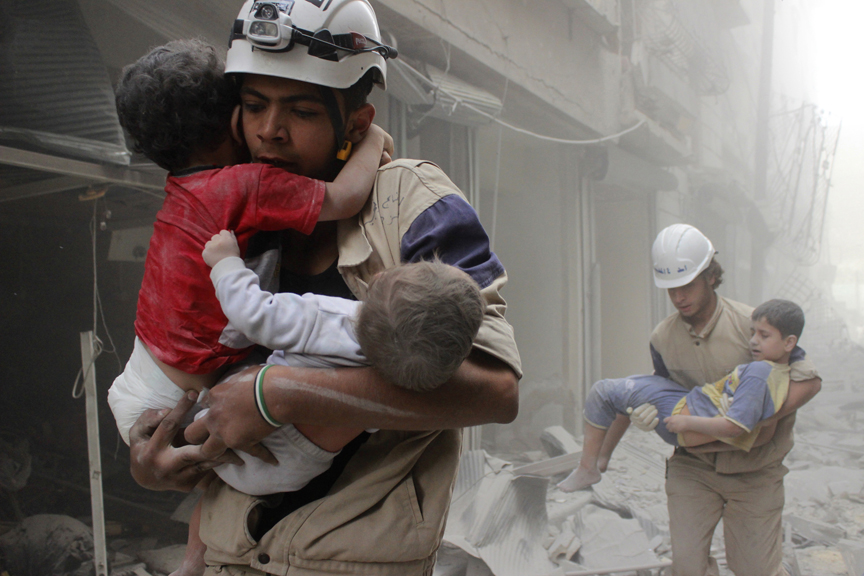
DESPITE the Abdou family’s desire to avoid the war, it swelled up around them anyway.
Al-Qaeda’s Syrian affiliate, Jabhat al-Nusra, moved into their Aleppo neighbourhood, then government forces bombarded it.
“We were watching people die indiscriminately, for no reason, whether it was a child or a woman. It was a really bad feeling,” says Zakaria.
Pro-government and opposition militias pressured Rezan and Mohammed to join them. They refused. “We are against tyranny and fascism and dictatorship, but we knew that if we took a clear stand, we would all be gone,” says Rezan.
“I could not support any of the groups on the ground,” Zakaria says, “because all of the groups that I saw were criminals. Either they were committing crimes in the name of religion, or in the name of ethnicity, or in the name of sectarianism. I didn’t see any group that was fighting in the name of Syria and all Syrians.”
Often, there was no electricity or water. Streets were mostly abandoned. But the worst moment for Zakaria came when he saw militants from Jabhat al-Nusra dragging a young man from the apartment next door, a bag over his head and his parents crying behind him, helpless to stop them.
“I was very afraid for Mohammed,” he says. “I started imagining it was myself instead of those parents. This is when I took the decision that I have to get the kids out.”
First to go, in 2013, was Mohammed. He tried twice to cross into Turkey before a border guard took pity and let him pass with only his documents and the clothes he wore.
The rest of the family followed over the next seven months. Some crossed legally. Others were smuggled. They lived in Istanbul. Mohammed washed dishes. Rezan worked physically gruelling jobs.
Zakaria believed there was not a home in Syria to which they could one day return, and registered them as refugees with the UNHCR in early 2014. A couple of months later, the UNHCR told Zakaria that Canadian consular officials wanted to interview them. They were accepted as government-assisted refugees to Canada on Dec. 14, 2014.
Ali wanted to stay in Turkey with his own wife and family. The others planned their trip. “We didn’t know anything about Canada, but then, we got on the Internet and started reading about Canada, and we felt so lucky,” says Rezan. “If there is a paradise on Earth, we suddenly felt that we’re going to paradise. We were going to a much better world. We were very happy and proud.”
Their happiness was circumscribed when they learned that Midya, now pregnant, would not be able to accompany the family to Canada. Zakaria says they haven’t been told why. He hopes the delay his daughter is facing is temporary.
“Once she is here, I will have peace and will be comfortable again,” says Rokan.
In the few weeks they have been in Canada, the Abdous say their experiences have been only positive. They receive an allowance from which they pay for the apartment they share. Mohammed hopes to return to school.
“Because it is a free country, everything is possible. We are optimistic, and we think the opportunities will be endless,” says Rezan. “We were living a serious life in Syria, a life in which we were achieving. We want to go back to that here. We want to have a happy home. We want to be achievers again here in Canada.”
Zakaria says his family has been blessed. They know others whose homes were bombed; some have lost children. “At least we still have each other,” he says. “I’m thankful to the Canadian government and the Canadian people for opening their doors to us and for being so generous. We hope we will not let them down.”
If the Abdous are pessimistic and frustrated, it is when they consider the fate of their homeland, and the rest of the world’s response.
“Something very natural would be to stop the killing. Stop the barrel bombs. Stop the air bombardments. Let’s have some troops on the ground, similar to peacekeeping troops. Basically, what we’re asking is to stop the machine of death in Syria. And I’m sure the might of the international community is able to do it in a small country like Syria,” says Rezan. “What killed us was the ‘blah, blah, blah’ of the international community. You killed us with your empty promises and your talk of non-intervention.”
Rezan pauses to catch his breath. “I have so much to say, but I just keep it in my heart.”
“WE HAD an image that, in Western societies, neighbours were not close to each other,” says Jasim Dandachi, with the bemused air of someone who is pleased to have discovered he was wrong.
Jasim is sitting in the comfortable living room of his family’s apartment in Laval. On the walls are many works of art: highly stylized Arabic calligraphy in white ink on a black background. Some depict the names of friends and family, others verses from the Quran. Jasim made them.
In the kitchen down the hall, Sohad is preparing iftar, the evening meal when Muslims break their fast during Ramadan. Guests are coming over to share it.
“But, in our own experience, we’re friends with all our neighbours,” Jasim continues. “And all we’ve gotten from them is solidarity and love.”
After Mohammed was released from prison, the Dandachis tried four times to cross the border into Lebanon and were turned back. The guards wouldn’t let entire families leave together.
Eventually, Jasim crossed with Mohammed and Jawad. He says he fell on his knees and thanked God that he was able to get two of his sons out. He then returned to Syria and paid a smuggler to extract Sohad and Hamza.
In Lebanon, Jasim registered with the UNHCR and soon learned that Canada had accepted the family as refugees. He says he was ecstatic. “Suddenly, the dream that my children would be able to continue their education was becoming a reality,” he says.
But, on arriving in Canada, there was still the perception that people in the West are cold and unfriendly. It was put to rest by, among others, their neighbour, an elderly Québécoise woman.
Jasim says he often knocks on her door to share food, or to ask if she needs groceries or other errands run. One day, the family was out, but rushed home because it had started to rain and they had left laundry hanging outside. When they arrived, it was gone. Their neighbour had taken it inside and folded it for them.
“This is an example that shows that, when you give love to people, all you get is love in return. This has been our social life since we’ve come here,” he says.
Jasim believes Syria can recover from the horror that has befallen it. The black-flag-waving radicals of Islamic State do not represent his countrymen, he says. The Syrian government has facilitated the group’s rise, because Assad wants to force the international community to choose between him and the international terrorists of Islamic State.
Jasim says Syrians want neither. They can live together peacefully again. But he says they need help.
“I’m not a military expert. All I know is that people are dying, and the two most effective killing machines in Syria right now are Da’ish and the Assad regime. And both of them need to be stopped.”
Jasim, however, has shifted his focus to Canada. He speaks of Syria as if describing something forever gone, at least to him. “What matters most for me is my children and for them to have a future. The future is theirs,” he says.
“I lost everything. I’ve lost my house, my town, my country, my family, my friends, my memories. Everything I’ve lost. And now, Canada has opened its doors and given me the opportunity to relive a life.”
source : http://www.macleans.ca/news/world/inside-the-syrian-refugee-crisis/
date : 17/07/2015
ABOUT THIS AUTHOR
